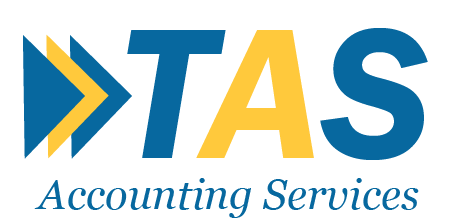The Ultimate Guide to Annual Accounts & Corporation Tax Return in Ireland
Navigating the complexities of annual accounts and corporation tax returns can be daunting for Irish business owners, accountants, and entrepreneurs. Understanding these processes is crucial to ensure compliance and to avoid costly penalties. This guide will provide a comprehensive overview, covering all necessary aspects of tax filing in Ireland.
Filing Annual Accounts
In Ireland, companies must prepare and submit their Annual Accounts to the Companies Registration Office (CRO) each year. These accounts serve as a financial statement disclosing details about a company’s financial performance and position over the past fiscal year. The process involves compiling the balance sheet, profit and loss statement, and accompanying notes, which must be approved by the board of directors and signed off by a director and the company secretary. Timely and accurate submission of these documents is critical, as failure to do so can result in fines and potentially more severe consequences, such as prosecution or the company’s removal from the register.
Corporation Tax Return
Separately, companies need to file a Corporation Tax Return with the Revenue Commissioners. This return declares the taxable income for the year and calculates the total tax owed. Companies typically need to pay their preliminary tax, based on estimates, in advance of filing the return and then settle any remaining liability once the actual figures are calculated. Accurate record-keeping is essential, as it supports the tax return and can be crucial if a company is subject to a tax audit. Filing deadlines must be adhered to in order to avoid interest charges or penalties. Both accounts and tax returns offer critical insights into a business’s economic health and compliance standing.
Annual Financial Statements Requirements
Every company in Ireland is legally obliged to prepare annual financial statements in accordance with the Companies Act and relevant accounting standards such as Irish Generally Accepted Accounting Principles (GAAP) or International Financial Reporting Standards (IFRS). These financial statements must comprise a balance sheet, profit and loss account, cash flow statement, and detailed notes to the financial statements. Additionally, companies are required to prepare a director’s report and, if not exempt, an auditor’s report. These documents provide a comprehensive overview of the company’s financial performance and are essential for transparency and accountability. Importantly, the financial statements should be completed within nine months of the company’s financial year-end. For filing, private limited companies (LTDs) are required to submit their financial statements to the Companies Registration Office (CRO). In contrast, public limited companies (PLCs) must file their financial statements with both the CRO and the Companies Announcements Office (CAO). Compliance with these requirements not only fulfills legal obligations but also strengthens stakeholder confidence in the company’s financial stewardship.
Maintaining compliance with these requirements is fundamental for legal adherence and nurturing stakeholder confidence.
Important Considerations for Corporation Tax Return
The Corporation Tax Return is a critical document that reports a company’s taxable income and calculates the amount of corporation tax payable. Companies must complete a Form CT1, obtainable from the Revenue Commissioners’ website, to ensure compliance. This form should comprehensively detail the company’s income, expenses, capital allowances, and any applicable tax credits or reliefs. The exact filing deadline is set for nine months after the financial year-end, making timely preparation essential. Additionally, companies may be obligated to pay preliminary corporation tax, which involves estimating the current year’s tax liability ahead of final calculations. Typically, the balance of the tax owed is due when the Corporation Tax Return is filed, emphasizing the importance of accuracy in initial estimations and record-keeping.
Filing and Deadlines
Both the Annual Accounts and the Corporation Tax Return can be filed online through the Revenue Online Service (ROS) or using commercially available accounting software. The deadlines for filing vary depending on the company’s financial year-end. Typically, companies have 9 months from the year-end to file their Annual Accounts and Corporation Tax Return. It’s important to note that late filing can result in penalties and interest charges, so it’s crucial to meet the deadlines. It’s worth mentioning that this information is based on the regulations in effect up until my last knowledge update in September 2021. It’s always advisable to consult the latest official guidelines from the CRO and the Revenue Commissioners or seek professional advice to ensure compliance with the most up-to-date requirements.
How TAS Consulting Helps
Tax consulting plays a vital role in helping individuals and businesses navigate the complexities of tax laws and regulations. TAS Consulting provides expert guidance and support across several key areas:
By offering comprehensive tax consulting services, TAS Consulting ensures that individuals and businesses are not only compliant but also positioned to achieve their financial goals efficiently.
Introduction to Annual Accounts and Corporation Tax Return
Every Irish company is required by law to file annual accounts and submit a corporation tax return. These filings are essential not only for transparency and compliance but also to avoid legal penalties that could impact your business. This guide aims to simplify these requirements and help you stay compliant. We will cover filing deadlines, potential penalties for late submissions, and the consequences of not meeting your obligations. We’ll also explain how TAS Consulting can help you navigate these requirements efficiently. Let’s dive in!
Timely Preparation is Key
As mentioned earlier, companies are required to file their annual accounts and corporation tax return within nine months after the end of their financial year. This deadline emphasizes the need for timely preparation, as any delays could lead to fines or interest charges on outstanding tax balances.
Furthermore, companies must ensure that all information provided in their filings is accurate and comprehensive. Inaccurate or incomplete information may result in additional scrutiny from regulatory agencies and potentially impact the company’s reputation
Understanding Annual Accounts
What are Annual Accounts?
Annual accounts consist of key financial documents detailing a company’s financial performance and position. Key components include:
Who Needs to File?
All trading companies in Ireland must file annual accounts, including dormant ones and small businesses. However, some may qualify for exemptions.
Filing Process
Deadlines for Filing
The annual return must be filed with the CRO within nine months of the company’s financial year-end. Late submissions incur penalties, which can increase over time.
Exemptions and Audit Requirements
Small companies meeting specific criteria may qualify for audit exemptions, making compliance easier and more cost-effective.
Understanding Corporation Tax Return (CT1)
What is Corporation Tax?
Corporation tax is a levy on a company’s profits, applicable to all businesses operating in Ireland. It is a vital part of the country’s tax revenue.
Key Components of the CT1 Form
Filing the CT1 Form
Deadlines for Corporation Tax Return
The CT1 form must be filed nine months after the end of the accounting period. The payment of corporation tax is due by the same deadline.
Penalties for Non-Compliance
How to Avoid Common Mistakes
Staying compliant with annual accounts and corporation tax returns is vital for maintaining your business’s reputation and financial health. Utilize this guide to simplify the process, and consider seeking professional assistance if needed.
For more detailed information, explore resources from the CRO and Revenue Commissioners, and connect with experienced accountants who can provide tailored support for your business needs.
SWOT Analysis of Compliance with Accounts and Corporation Tax Return
PESTLE Analysis of Tax Compliance and Corporate Reporting
Understanding and analyzing these PESTLE factors helps businesses anticipate changes in the external environment, allowing them to navigate the complex landscape of tax compliance and corporate reporting with foresight and preparedness.
Case Studies
Small Retail Business
A small retail business in Dublin faced challenges with managing its corporate tax returns due to limited resources and expertise. By engaging a professional accounting firm, the business was able to streamline its financial reporting process. The accountants identified overlooked deductions, leading to significant tax savings. Additionally, they implemented digital tools for efficient records management and timely submissions, enhancing the business’s compliance and operational efficiency.
Technology Startup
A tech startup in Galway embarked on rapid expansion, which complicated its tax compliance due to cross-border transactions. By leveraging advanced tax compliance software, the startup automated much of its reporting process, reducing human error and ensuring adherence to both domestic and international tax regulations. The company also consulted with legal experts to navigate intellectual property laws, maximizing tax reliefs associated with their R&D efforts and propelling further innovation.
Manufacturing Enterprise
A large manufacturing enterprise headquartered in Cork faced increased regulatory scrutiny following changes in tax laws. To maintain compliance and optimize tax costs, the enterprise conducted a thorough SWOT and PESTLE analysis with the help of TAS Consulting. This analysis highlighted opportunities for leveraging government allowances on sustainable practices, ultimately leading to enhanced efficiency and lowered tax liabilities. The company’s proactive approach to tax compliance not only prevented potential penalties but also improved stakeholder confidence.
Frequently Asked Questions
What is the importance of tax compliance for businesses?
Tax compliance is crucial as it helps avoid financial penalties, maintains a positive reputation with stakeholders, and ensures adherence to legal requirements, facilitating smooth business operations.
How can businesses manage tax compliance more effectively?
Effective management can be achieved by utilizing digital tools, hiring professional accounting services for expert advice, and staying informed about current tax laws and regulations.
What are the potential risks of non-compliance with tax laws?
Non-compliance can result in severe consequences, including financial penalties, legal actions, and loss of business reputation, potentially impacting investor and consumer trust.
How does technology impact tax compliance?
Technology streamlines the tax filing process through automation, reduces human errors, and enhances data security, making tax compliance more efficient and reliable.
What role does corporate social responsibility (CSR) play in tax compliance?
CSR encourages businesses to comply faithfully with tax obligations to maintain a positive public image and uphold ethical standards, fostering trust among consumers and investors.
How do regulatory changes affect corporate tax reporting?
Regulatory changes can increase the complexity of tax reporting, requiring businesses to adapt quickly by updating their processes and consulting experts to ensure continued compliance.
What are some common deductions businesses might overlook?
Businesses often overlook deductions related to research and development, green energy initiatives, and employee training expenses, which can reduce taxable income.
Can small businesses benefit from hiring a tax professional?
Yes, small businesses can benefit significantly by collaborating with a tax professional who can provide expert advice, uncover potential savings, and ensure compliance with tax regulations.
What are the advantages of using tax compliance software?
Tax compliance software facilitates efficiency in record-keeping, reduces the risk of errors, automates calculations, and helps in meeting submission deadlines, making compliance less burdensome.
Why is understanding PESTLE analysis important for tax strategy?
PESTLE analysis helps businesses identify external factors impacting tax strategy, such as political, economic, and legal changes, allowing for informed decision-making and strategic planning.













